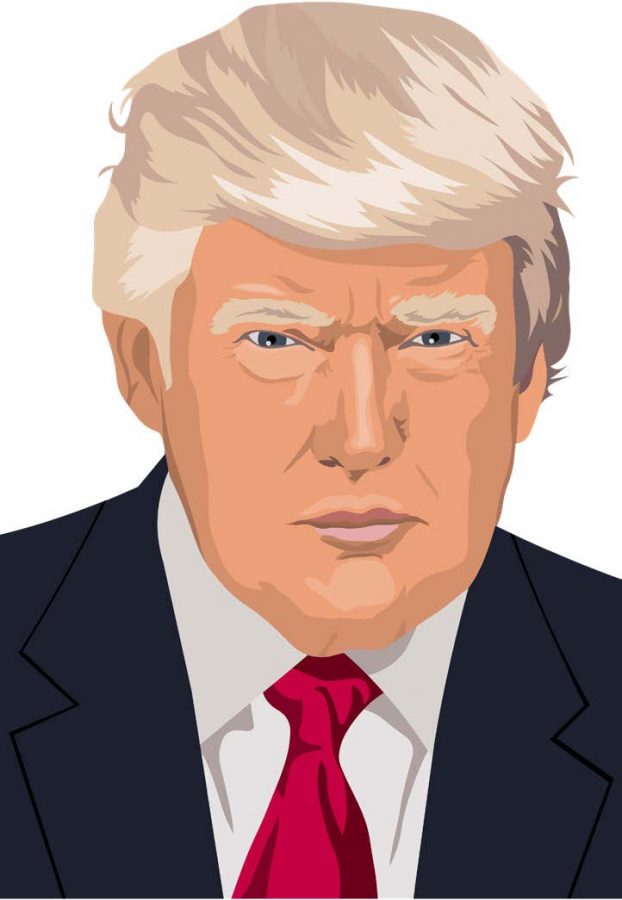Christmas Controversy Continues
The debate over the legitimacy of the “war on Christmas” continues.
January 18, 2020
When Donald Trump spoke at the Values Voters Summit in October 2017, he said, “We’re getting near that beautiful Christmas season that people don’t talk about anymore. They don’t use the word ‘Christmas’ cause it’s not politically correct. You go department stores and they’ll say, ‘Happy New Year,’ or they’ll say other things, and it’ll be red, they have it painted, but they don’t say, well guess what? We’re saying, ‘Merry Christmas’ again.”
After Trump won the election but before his inauguration, he promised supporters in Cedar Rapids, Michigan, department stores would start saying “Merry Christmas” again. It has become a holiday tradition for Trump to bring up the concept of the “war on Christmas.”
“I think its an attempt to communicate with the Fox News audience, the right of center sector of the United States that feel that this is part of a culture war that some people may resent that fact that America has always been a diverse country, and when one says, ‘Happy holidays,’ for example, it’s a sentiment of … acknowledging Christmas and in some ways acknowledging there are other holidays like Hanukkah,” said Carlos Contreras, a Grossmont history professor. “The whole idea that there is some concerted effort to muscle the Christianity part of the way we celebrate Christmas; I think it’s a fictional narrative, I think it’s intended to gin up the base because there is no ‘war on Christmas.’”

According to Dan Cassino, a professor at Fairleigh Dickinson University who spoke to The New York Times in 2016, Fox News promoted a 2005 book that “alleged liberal antagonism toward the holiday.” Former Fox anchor Bill O’Reilly then further popularized the “War on Christmas” in our modern culture. He used his platform to tell the public a war is being waged against Christmas. The assailants were liberals who were attempting to oppress Christian Americans. O’Reilly would list the “nice” stores that used “Merry Christmas” in their advertisements and the “naughty” stores that didn’t. While O’Reilly is no longer on Fox News due to several sexual assault allegations, the news company continues to cover this story.
In 2017, Fox News hosted panelist Vince Coglianese, the editorial director for The Daily Caller, to discuss if Trump is winning the “war on Christmas.” Coglianese said: “Stop taking Christ out of Christmas. I mean, really, the whole holiday season really revolves around December 25th, Christ’s birthday. And people like to be reminded of that and when they hear Donald Trump say, ‘Merry Christmas.’
“It really is not about necessarily about just the “war on Christmas,” Coglianese continued. “It’s about the war on Christianity. They’d like to make sure Christianity continues to be a dominant force in America, because you know it has been since our founding.”
The news channel also has a history of critiquing Starbucks for not putting “Merry Christmas” or Christian iconography on their cup. They began this year’s coverage of Starbucks’ holiday cups on their website in early November.
“I think fine because there’s some people that are in different religions,” said Christina Rogers, a Christian student at Grossmont, “It’s just a neutral color.”
In the 1920s, Henry Ford wrote many pamphlets that accused American Jews of engaging in a conspiracy to abolish Christianity in America, many focusing on Christmas. These pamphlets, along with other anti-Semitic pamphlets, were collected under the title, “The International Jew: The World’s Foremost Problem.”
Ford complained of Christmas cards not making clear the holiday was about the birth of Jesus, the removal of mentioning Jesus during Christmas activities and department stores for secularizing Christmas. Since he believed Jewish people were secretly behind everything he held discontent for, he blamed them for what he saw as problems. This is the thesis of this collection.
While those who now promote the idea of the “war on Christmas” are not being blatantly anti-Semitic as Ford, their argument that Christmas is being attacked by ‘others’ bears a troubling resemblance to Ford’s arguments.














